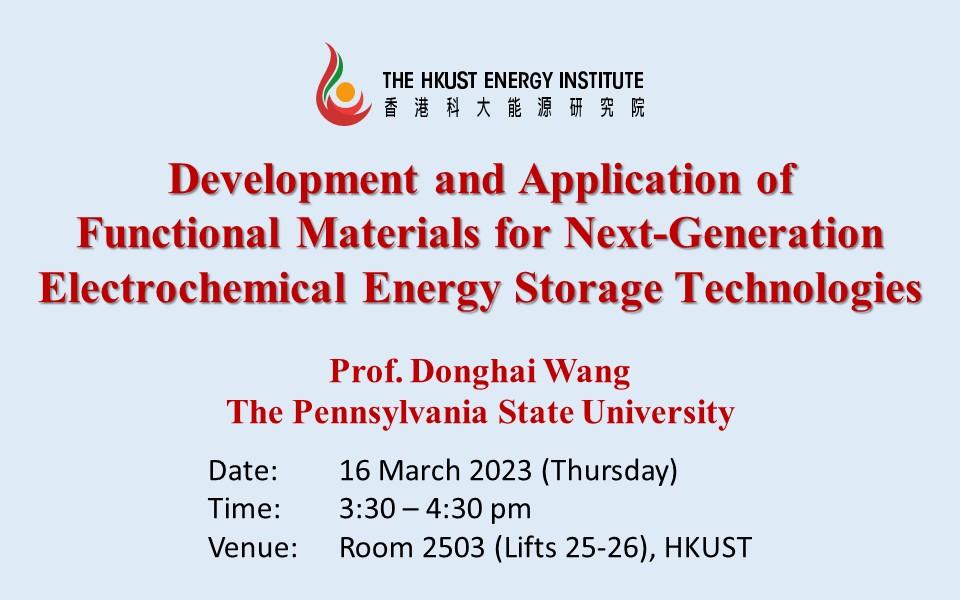Development and Application of Functional Materials for Next-Generation Electrochemical Energy Storage Technologies
Supporting the below United Nations Sustainable Development Goals:支持以下聯合國可持續發展目標:支持以下联合国可持续发展目标:
With advances in electrification in transportation, extensive use of power electronics, and utilization of renewable energy and their assimilation into the electrical grid, there is a clear need to develop high-performance, safer, and more sustainable energy storage technologies for the emerging applications. My group is interested in developing and applying new materials in electrochemical energy storage technologies such as next-generation Li-ion, Li metal, Na-ion, and solid-state batteries. In my talk, I will first cover the development of electrode materials for next-generation Li-ion batteries to illustrate our understanding of the structure-property relationship for its excellent energy density and cycling stability. Second, I will present approaches to developing high-performance solid-state batteries, including synthesizing highly conductive solid-state electrolytes, designing and architecting stable interphases on electrode materials using electrochemically active interfacial materials, and fabricating low-cost cathode materials, potentially for electric vehicle and stationary energy storage applications. Together, I would like to demonstrate the research effort aiming to build our knowledge, expertise, and understanding of critical electrochemical processes and mechanisms to employ desired features in electrochemical energy storage systems to meet the requirement of new energy applications.
Prof. Donghai Wang is a Professor in Department of Mechanical Engineering, Department of Chemical Engineering, and the Institute of Energy and the Environment at the Pennsylvania State University. Dr. Donghai Wang is a well-known researcher in developing new materials and techniques for energy storage technologies. He has been an ardent researcher responsible for leading multiple-organization interdisciplinary teams, executing over $21M grants as principal investigators and co-investigators, and overseeing 50 doctoral students and postdoctoral fellows. He has co-authored around 120 peer-reviewed journal articles with an H-index of 74 (Google Scholar) and given over 100 talks at professional conferences and universities. He was identified as a Highly Cited Researcher in 2018-2022 according to Web of Science. Dr. Wang is a prolific inventor with over 20 applications filed in the fields of nanomaterials and related applications to energy storage techniques.
